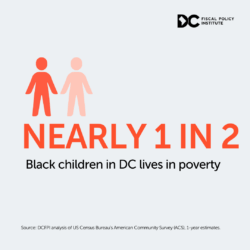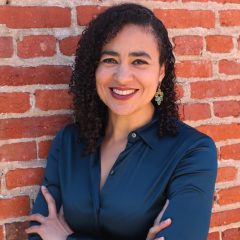Even as DC’s economy grows, it is marked by stark racial inequalities in income, wealth, and poverty. Affording the basics, such as rent, food, and utilities is a daily challenge for many DC residents. This is disproportionately true for Black residents, one in five of whom live in poverty. Income support programs help people make ends meet and boost long-term education and health outcomes for children. By helping residents pay their bills, care for their children and possibly save for a rainy day, DC can help create more stability and a future of shared abundance.
Featured Publications & Resources
Testimony
Testimony of Elissa Silverman, Communications Director, At the Public Hearing on B20-438, “Minimum Wage and Accrued Sick and Safe Leave Amendment Act of 2013â€; B20-459, “Minimum Wage Amendment Act of 2013â€; B20-460, “Living Wage for All Act of 2013â€; B20-463, “Minimum Wage Revision Commission Establishment Amendment Act of 2013â€; B20-480, “Earned Sick and Safe Leave Act of 2013â€
By DC Fiscal Policy Institute • October 30, 2013 • Inclusive Economy / Income & Poverty / Jobs & Training
Testimony
Testimony of Ed Lazere, Executive Director, At the Joint Public Hearing on • B20-438, the “Minimum Wage and Accrued Sick and Safe Leave Amendment Act of 2013†• B20-459, the “Minimum Wage Amendment Act of 2013†• B20-460, the “Living Wage for All Act of 2013†• B20-463, the “Minimum Wage Revision Commission Establishment Amendment Act of 2013 • B20-480, the “Earned Sick and Safe Leave Act of 2013â€
By DC Fiscal Policy Institute • October 28, 2013 • Inclusive Economy / Income & Poverty / Jobs & Training
Blog
Hearing on Minimum Wage and Paid Sick Days Monday!
By DC Fiscal Policy Institute • October 25, 2013 • Income & Poverty
Latest on this Issue
Testimony
Public Comments in Opposition to Proposed Federal “Public Charge” Rule
By DC Fiscal Policy Institute • January 15, 2026 • Income & Poverty
Blog
DC Tax Credits for Households with Low Incomes Will Reduce Child Poverty by One-Fifth
By Maria Manansala • December 18, 2025 • Income & Poverty / Taxes
Blog
Inequality Remained Extreme in 2024 as DC Backslid on Poverty
By Connor Zielinski • September 15, 2025 • Income & Poverty






